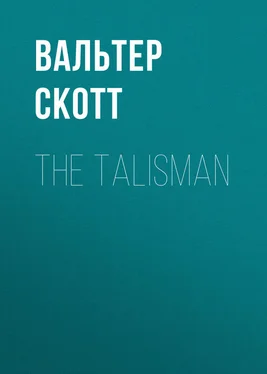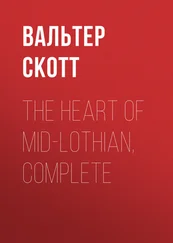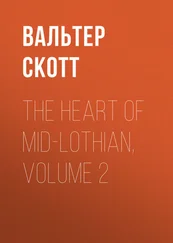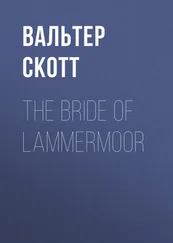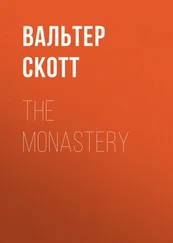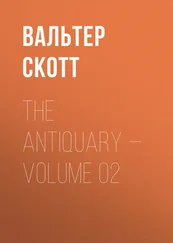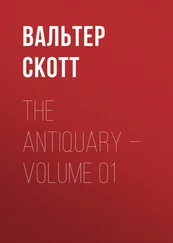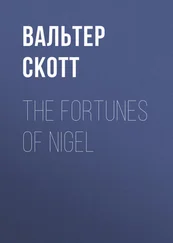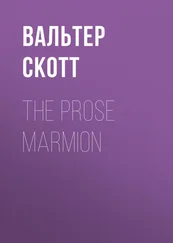Вальтер Скотт - The Talisman
Здесь есть возможность читать онлайн «Вальтер Скотт - The Talisman» — ознакомительный отрывок электронной книги совершенно бесплатно, а после прочтения отрывка купить полную версию. В некоторых случаях можно слушать аудио, скачать через торрент в формате fb2 и присутствует краткое содержание. Жанр: foreign_antique, foreign_prose, на английском языке. Описание произведения, (предисловие) а так же отзывы посетителей доступны на портале библиотеки ЛибКат.
- Название:The Talisman
- Автор:
- Жанр:
- Год:неизвестен
- ISBN:нет данных
- Рейтинг книги:3 / 5. Голосов: 1
-
Избранное:Добавить в избранное
- Отзывы:
-
Ваша оценка:
- 60
- 1
- 2
- 3
- 4
- 5
The Talisman: краткое содержание, описание и аннотация
Предлагаем к чтению аннотацию, описание, краткое содержание или предисловие (зависит от того, что написал сам автор книги «The Talisman»). Если вы не нашли необходимую информацию о книге — напишите в комментариях, мы постараемся отыскать её.
The Talisman — читать онлайн ознакомительный отрывок
Ниже представлен текст книги, разбитый по страницам. Система сохранения места последней прочитанной страницы, позволяет с удобством читать онлайн бесплатно книгу «The Talisman», без необходимости каждый раз заново искать на чём Вы остановились. Поставьте закладку, и сможете в любой момент перейти на страницу, на которой закончили чтение.
Интервал:
Закладка:
The toil, the thirst, the dangers of the way, were forgotten, as the traveller recalled the fearful catastrophe which had converted into an arid and dismal wilderness the fair and fertile valley of Siddim, once well watered, even as the Garden of the Lord, now a parched and blighted waste, condemned to eternal sterility.
Crossing himself, as he viewed the dark mass of rolling waters, in colour as in duality unlike those of any other lake, the traveller shuddered as he remembered that beneath these sluggish waves lay the once proud cities of the plain, whose grave was dug by the thunder of the heavens, or the eruption of subterraneous fire, and whose remains were hid, even by that sea which holds no living fish in its bosom, bears no skiff on its surface, and, as if its own dreadful bed were the only fit receptacle for its sullen waters, sends not, like other lakes, a tribute to the ocean. The whole land around, as in the days of Moses, was “brimstone and salt; it is not sown, nor beareth, nor any grass groweth thereon.” The land as well as the lake might be termed dead, as producing nothing having resemblance to vegetation, and even the very air was entirely devoid of its ordinary winged inhabitants, deterred probably by the odour of bitumen and sulphur which the burning sun exhaled from the waters of the lake in steaming clouds, frequently assuming the appearance of waterspouts. Masses of the slimy and sulphureous substance called naphtha, which floated idly on the sluggish and sullen waves, supplied those rolling clouds with new vapours, and afforded awful testimony to the truth of the Mosaic history.
Upon this scene of desolation the sun shone with almost intolerable splendour, and all living nature seemed to have hidden itself from the rays, excepting the solitary figure which moved through the flitting sand at a foot’s pace, and appeared the sole breathing thing on the wide surface of the plain. The dress of the rider and the accoutrements of his horse were peculiarly unfit for the traveller in such a country. A coat of linked mail, with long sleeves, plated gauntlets, and a steel breastplate, had not been esteemed a sufficient weight of armour; there were also his triangular shield suspended round his neck, and his barred helmet of steel, over which he had a hood and collar of mail, which was drawn around the warrior’s shoulders and throat, and filled up the vacancy between the hauberk and the headpiece. His lower limbs were sheathed, like his body, in flexible mail, securing the legs and thighs, while the feet rested in plated shoes, which corresponded with the gauntlets. A long, broad, straight-shaped, double-edged falchion, with a handle formed like a cross, corresponded with a stout poniard on the other side. The knight also bore, secured to his saddle, with one end resting on his stirrup, the long steel-headed lance, his own proper weapon, which, as he rode, projected backwards, and displayed its little pennoncelle, to dally with the faint breeze, or drop in the dead calm. To this cumbrous equipment must be added a surcoat of embroidered cloth, much frayed and worn, which was thus far useful that it excluded the burning rays of the sun from the armour, which they would otherwise have rendered intolerable to the wearer. The surcoat bore, in several places, the arms of the owner, although much defaced. These seemed to be a couchant leopard, with the motto, “I sleep; wake me not.” An outline of the same device might be traced on his shield, though many a blow had almost effaced the painting. The flat top of his cumbrous cylindrical helmet was unadorned with any crest. In retaining their own unwieldy defensive armour, the Northern Crusaders seemed to set at defiance the nature of the climate and country to which they had come to war.
The accoutrements of the horse were scarcely less massive and unwieldy than those of the rider. The animal had a heavy saddle plated with steel, uniting in front with a species of breastplate, and behind with defensive armour made to cover the loins. Then there was a steel axe, or hammer, called a mace-of-arms, and which hung to the saddle-bow. The reins were secured by chain-work, and the front-stall of the bridle was a steel plate, with apertures for the eyes and nostrils, having in the midst a short, sharp pike, projecting from the forehead of the horse like the horn of the fabulous unicorn.
But habit had made the endurance of this load of panoply a second nature, both to the knight and his gallant charger. Numbers, indeed, of the Western warriors who hurried to Palestine died ere they became inured to the burning climate; but there were others to whom that climate became innocent and even friendly, and among this fortunate number was the solitary horseman who now traversed the border of the Dead Sea.
Nature, which cast his limbs in a mould of uncommon strength, fitted to wear his linked hauberk with as much ease as if the meshes had been formed of cobwebs, had endowed him with a constitution as strong as his limbs, and which bade defiance to almost all changes of climate, as well as to fatigue and privations of every kind. His disposition seemed, in some degree, to partake of the qualities of his bodily frame; and as the one possessed great strength and endurance, united with the power of violent exertion, the other, under a calm and undisturbed semblance, had much of the fiery and enthusiastic love of glory which constituted the principal attribute of the renowned Norman line, and had rendered them sovereigns in every corner of Europe where they had drawn their adventurous swords.
It was not, however, to all the race that fortune proposed such tempting rewards; and those obtained by the solitary knight during two years’ campaign in Palestine had been only temporal fame, and, as he was taught to believe, spiritual privileges. Meantime, his slender stock of money had melted away, the rather that he did not pursue any of the ordinary modes by which the followers of the Crusade condescended to recruit their diminished resources at the expense of the people of Palestine – he exacted no gifts from the wretched natives for sparing their possessions when engaged in warfare with the Saracens, and he had not availed himself of any opportunity of enriching himself by the ransom of prisoners of consequence. The small train which had followed him from his native country had been gradually diminished, as the means of maintaining them disappeared, and his only remaining squire was at present on a sick-bed, and unable to attend his master, who travelled, as we have seen, singly and alone. This was of little consequence to the Crusader, who was accustomed to consider his good sword as his safest escort, and devout thoughts as his best companion.
Nature had, however, her demands for refreshment and repose even on the iron frame and patient disposition of the Knight of the Sleeping Leopard; and at noon, when the Dead Sea lay at some distance on his right, he joyfully hailed the sight of two or three palm-trees, which arose beside the well which was assigned for his mid-day station. His good horse, too, which had plodded forward with the steady endurance of his master, now lifted his head, expanded his nostrils, and quickened his pace, as if he snuffed afar off the living waters which marked the place of repose and refreshment. But labour and danger were doomed to intervene ere the horse or horseman reached the desired spot.
As the Knight of the Couchant Leopard continued to fix his eyes attentively on the yet distant cluster of palm-trees, it seemed to him as if some object was moving among them. The distant form separated itself from the trees, which partly hid its motions, and advanced towards the knight with a speed which soon showed a mounted horseman, whom his turban, long spear, and green caftan floating in the wind, on his nearer approach showed to be a Saracen cavalier. “In the desert,” saith an Eastern proverb, “no man meets a friend.” The Crusader was totally indifferent whether the infidel, who now approached on his gallant barb as if borne on the wings of an eagle, came as friend or foe – perhaps, as a vowed champion of the Cross, he might rather have preferred the latter. He disengaged his lance from his saddle, seized it with the right hand, placed it in rest with its point half elevated, gathered up the reins in the left, waked his horse’s mettle with the spur, and prepared to encounter the stranger with the calm self-confidence belonging to the victor in many contests.
Читать дальшеИнтервал:
Закладка:
Похожие книги на «The Talisman»
Представляем Вашему вниманию похожие книги на «The Talisman» списком для выбора. Мы отобрали схожую по названию и смыслу литературу в надежде предоставить читателям больше вариантов отыскать новые, интересные, ещё непрочитанные произведения.
Обсуждение, отзывы о книге «The Talisman» и просто собственные мнения читателей. Оставьте ваши комментарии, напишите, что Вы думаете о произведении, его смысле или главных героях. Укажите что конкретно понравилось, а что нет, и почему Вы так считаете.
